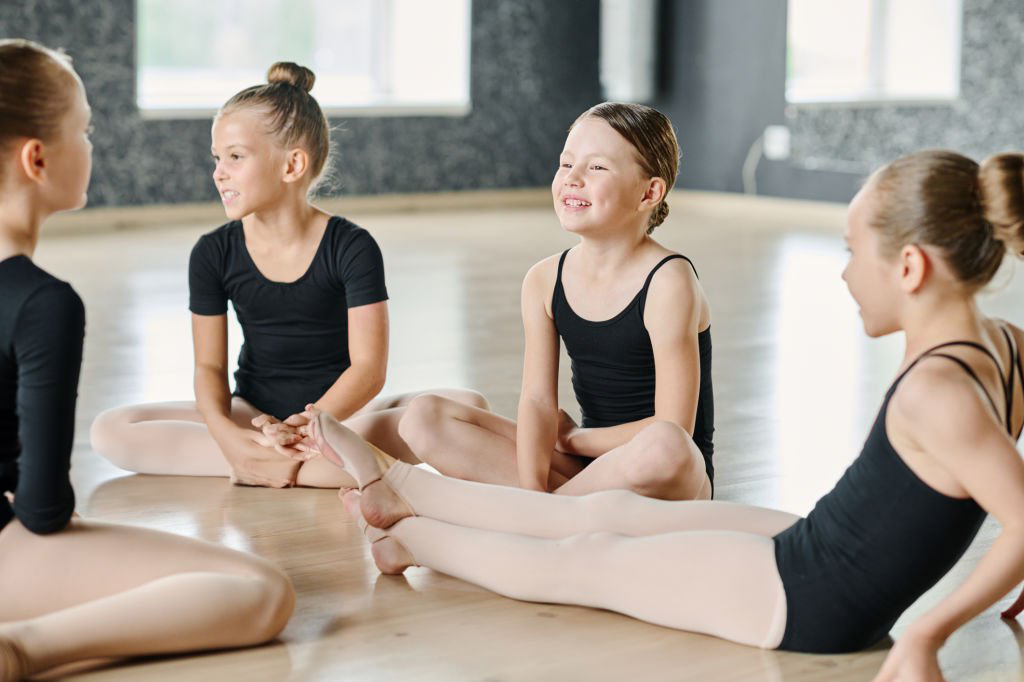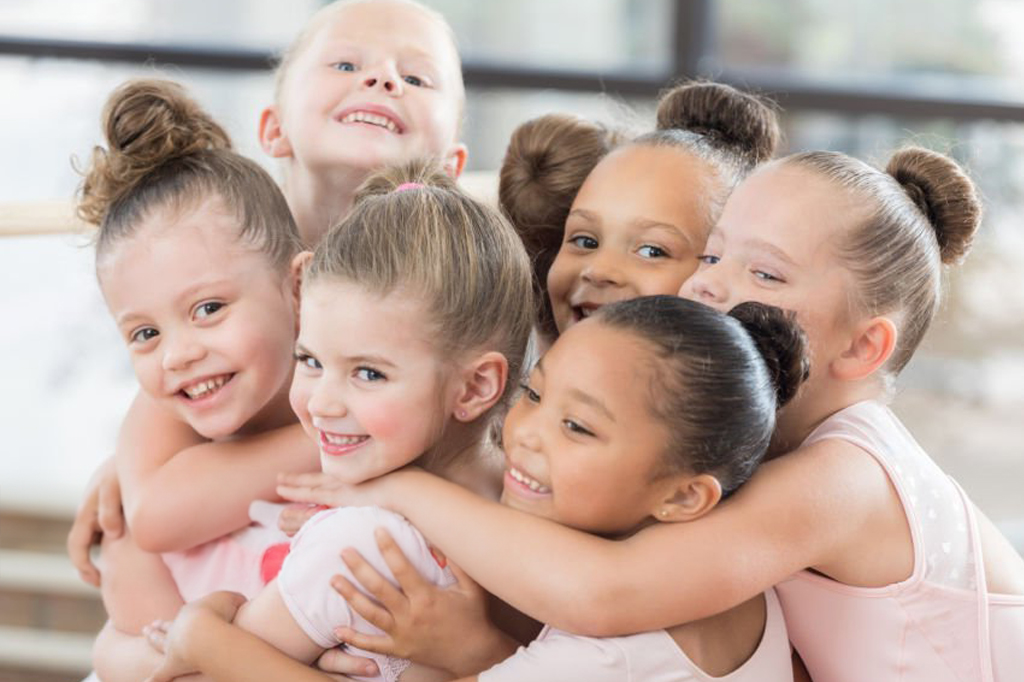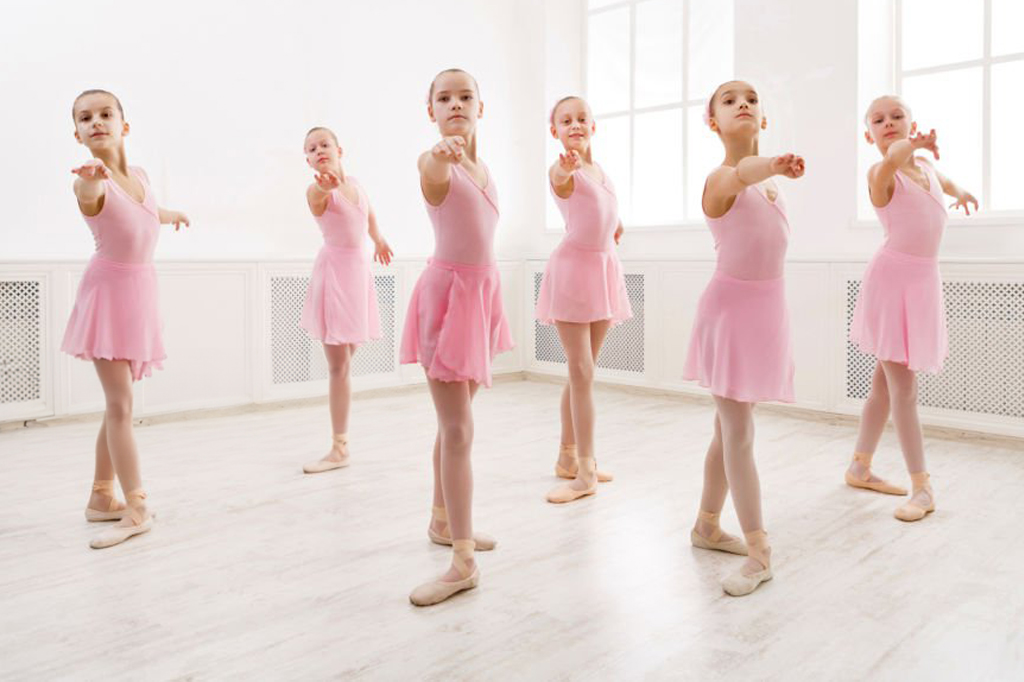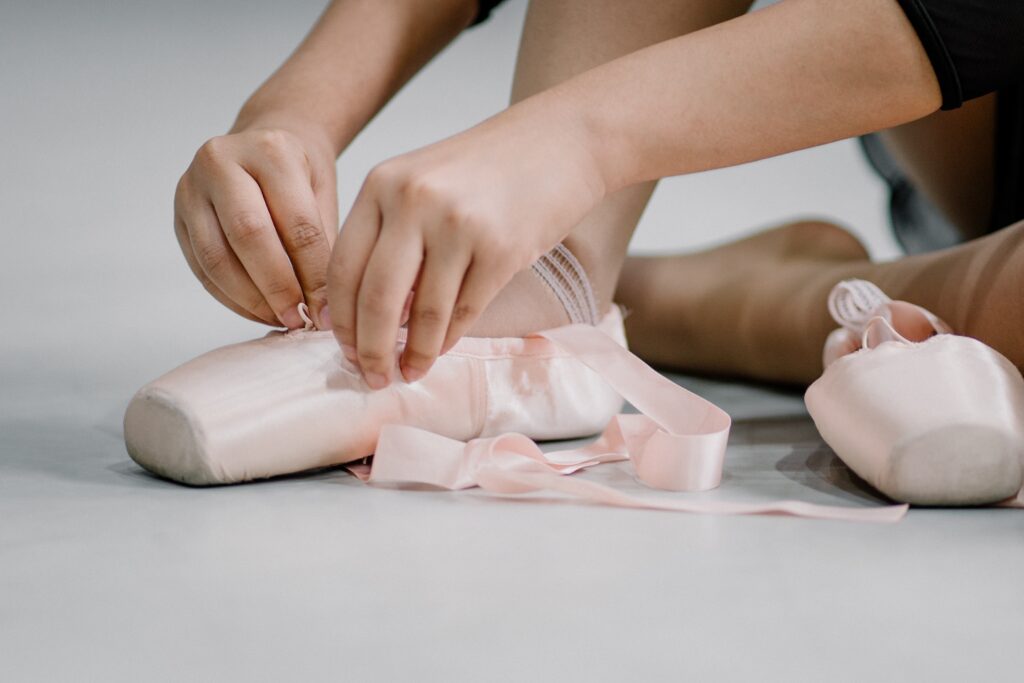Ballet is a beautiful and graceful art form that has been around for centuries. It is often associated with ballerinas twirling around in tutus, but it is so much more than that. Ballet can be a fun and rewarding summer activity for children of all ages and abilities. In this article, we will explore the benefits of ballet for children and how it can enhance their summer experience.

Ballet is more than just a form of dance. It is a physical activity that requires strength, flexibility, and endurance. By incorporating ballet into their summer activities, children can improve their overall fitness and health. In addition, ballet can help children develop important skills such as discipline, focus, and perseverance. It can also boost their self-confidence and self-esteem.
Key Takeaways
- Ballet Class is a fun and rewarding summer activity for children of all ages and abilities.
- Ballet can improve children’s overall fitness and health while helping them develop important skills such as discipline, focus, and perseverance.
- Choosing the right ballet program and ensuring safety measures are in place are important considerations for parents.
The Benefits of Ballet for Children

Ballet is a form of dance that involves precise movements, graceful poses, and expressive gestures. It is a great way for children to stay active and engaged during the summer months. Take a look at our summer dance camp, always at an affordable rate! Here are some of the benefits of ballet for children:
Physical Fitness and Coordination
Ballet requires a lot of physical strength, flexibility, and coordination. It helps children develop strong muscles, improve their posture, and enhance their balance. Ballet also helps children develop a sense of rhythm and timing, which can benefit them in other areas of life, such as sports or music.
Discipline and Focus
Ballet requires a high level of discipline and focus. Children must learn to follow instructions, pay attention to details, and practice consistently. These skills can help children in other areas of life, such as academics or personal relationships. Ballet also teaches children the importance of perseverance and hard work.
Creativity and Expression
Ballet allows children to express themselves creatively through movement and music. It encourages children to explore their emotions and imagination, and to communicate their ideas through dance. Ballet also exposes children to different styles of music and art, which can broaden their cultural horizons.
In conclusion, ballet is a wonderful activity for children during the summer months. It provides physical, mental, and emotional benefits that can help children grow and develop in many ways.
Incorporating Ballet into Summer Activities

Ballet is a great way to keep your child active and engaged during the summer months. Whether your child is a beginner or an experienced dancer, there are many ways to incorporate ballet into their summer activities.
Ballet Camps and Workshops
One great way to get your child involved in ballet during the summer is to enroll them in a ballet camp or workshop. These programs offer intensive training in ballet, as well as other dance styles and related activities. Many ballet camps and workshops are available for children of all ages and skill levels, so you can find a program that is right for your child.
Daily Ballet Exercises at Home
If you can’t enroll your child in a ballet camp or workshop, you can still incorporate ballet into their daily summer routine. Encourage your child to practice ballet exercises at home, such as pliés, tendus, and relevés. These exercises can be done in a small space and require little to no equipment. You can also find online resources and instructional videos to help your child learn and practice ballet at home.
Community Dance Events
Another way to incorporate ballet into your child’s summer activities is to attend community dance events. Many cities and towns host outdoor dance performances and festivals during the summer months. These events offer a great opportunity for your child to see professional dancers perform ballet and other dance styles. You can also look for local dance schools and studios that offer summer performances and recitals.
Incorporating ballet into your child’s summer activities is a great way to keep them active and engaged. Whether you enroll them in a ballet camp or workshop, encourage them to practice ballet exercises at home, or attend community dance events, your child is sure to have a fun and rewarding summer experience.
Ballet and Overall Child Development

Ballet is an excellent activity for children that can enhance their overall development. Through ballet, children can improve their social skills, cognitive growth, and emotional well-being.
Social Skills Enhancement
Ballet helps children develop social skills such as teamwork, communication, and cooperation. During ballet classes, children learn to work together to create a cohesive and synchronized performance. They also learn to communicate with their peers and instructors to ensure that they are performing the steps correctly. Ballet classes provide a positive and supportive environment where children can build relationships with their peers and instructors.
Cognitive Growth
Ballet requires children to use their cognitive skills such as memory, attention, and problem-solving. Children need to remember the steps and sequences of the dance, pay attention to the music and the instructor, and solve problems when they encounter difficulties. Ballet classes can help children improve their cognitive skills, which can benefit them in other areas of their lives.
Emotional Well-being
Ballet can also enhance a child’s emotional well-being. Through ballet, children can learn to express themselves creatively and develop a sense of self-confidence. Ballet classes can also provide a positive outlet for children to release stress and anxiety. By participating in ballet, children can improve their mental health and overall well-being.
In conclusion, ballet can have a positive impact on a child’s overall development. Through ballet, children can improve their social skills, cognitive growth, and emotional well-being. Ballet classes provide a supportive and positive environment where children can learn and grow.
Choosing the Right Ballet Program

When it comes to choosing the right ballet program for your child, there are several factors to consider. Here are some tips to help you make an informed decision.
Assessing Skill Levels
Before enrolling your child in a ballet program, it’s important to assess their skill level. This will help you determine which classes are appropriate for them. Consider their age, experience, and natural ability. If your child is a beginner, look for classes that focus on the fundamentals of ballet. For more advanced students, look for classes that offer more challenging techniques and combinations.
Evaluating Ballet Schools and Instructors
When evaluating ballet schools and instructors, there are several things to consider. Look for schools that have a good reputation and experienced instructors. Ask for recommendations from other parents or dance professionals. Consider the size of the classes and the amount of individual attention your child will receive. It’s also important to observe a class before enrolling your child to get a sense of the teaching style and atmosphere.
Considering Costs and Schedules
Cost and schedule are also important factors to consider when choosing a ballet program. Look for programs that fit within your budget and schedule. Consider the cost of tuition, costumes, and other fees. Look for programs that offer flexible scheduling options, such as evening or weekend classes. Keep in mind that some programs may require a significant time commitment, so be sure to choose a program that works for your family’s schedule.
By considering these factors, you can choose a ballet program that will enhance your child’s summer experience and help them develop their dance skills.
Preparation for Summer Ballet
Setting Goals and Expectations
Before starting summer ballet classes, it is important for parents and children to discuss and set realistic goals and expectations. This will help to ensure that both parties are on the same page and that the child is motivated and focused throughout the summer.
Goals can include improving technique, learning new dance styles, or preparing for a performance. It is important to set specific, measurable, achievable, relevant, and time-bound (SMART) goals, as this will make it easier to track progress and stay motivated.
Appropriate Ballet Attire and Equipment
Proper ballet attire and equipment are essential for a successful summer ballet experience. Children should wear comfortable and breathable clothing that allows for a full range of movement, such as leotards, tights, and ballet shoes.
Parents should also ensure that their child has the necessary equipment for ballet class, such as a ballet bag, water bottle, and hair ties. It is important to label all items with the child’s name to avoid confusion or loss.
Nutritional Considerations for Young Dancers
Proper nutrition is essential for young dancers, as it provides the energy and nutrients needed for optimal performance. Parents should ensure that their child is eating a balanced diet that includes a variety of fruits, vegetables, whole grains, lean protein, and healthy fats.
It is also important to stay hydrated by drinking plenty of water before, during, and after class. Sugary drinks and snacks should be limited, as they can cause energy crashes and interfere with performance.
By setting goals and expectations, wearing appropriate attire and equipment, and maintaining a healthy diet, young dancers can prepare for a successful and enjoyable summer ballet experience.
Safety Measures in Ballet Training
Ballet is a physically demanding activity that requires discipline, strength, and flexibility. It is important to ensure that your child is safe while participating in ballet training. This section will cover the safety measures that should be taken during ballet training.
Understanding the Risks
Ballet training involves a lot of jumping, spinning, and stretching, which can put a lot of stress on the body. It is important to understand the risks associated with ballet training, such as sprains, strains, and other injuries. Children who are not properly trained or do not have the necessary strength and flexibility are at a higher risk of injury.
Injury Prevention Strategies
To prevent injuries during ballet training, it is important to take certain precautions. First, make sure your child is properly trained and has the necessary strength and flexibility. Second, ensure that your child is wearing appropriate clothing and footwear. Tight-fitting clothing and ballet shoes with proper support can help prevent injuries. Third, warm-up exercises should be done before starting ballet training to prepare the body for the physical demands of the activity. Lastly, cooling down exercises should be done after ballet training to stretch and relax the muscles.
Hydration and Rest
Proper hydration and rest are also important safety measures in ballet training. Children should drink plenty of water before, during, and after ballet training to prevent dehydration. It is also important to ensure that your child gets enough rest between ballet training sessions to allow the body to recover and prevent fatigue.
By following these safety measures, your child can enjoy the benefits of ballet training while minimizing the risks of injury.
Parental Involvement and Support
Encouraging Practice at Home
Parents can play a crucial role in their child’s ballet journey by encouraging them to practice at home. This can help them improve their skills and build confidence. Parents can create a designated practice space at home, set a regular practice schedule, and provide positive feedback to their child. They can also help their child stay motivated by setting achievable goals and rewarding them for their progress.
Attending Performances and Recitals
Attending performances and recitals is an important way for parents to support their child’s ballet experience. This not only shows their child that they are proud of their hard work, but also provides an opportunity for them to see other dancers perform and gain inspiration. Parents can also help their child prepare for performances by ensuring they have the proper attire and accessories, and by providing emotional support.
Fostering a Positive Attitude Towards Ballet
Parents can also help foster a positive attitude towards ballet by emphasizing the fun and enjoyment that can come from the art form. They can avoid placing too much pressure on their child to perform perfectly and instead focus on the joy of learning and growing as a dancer. Encouraging their child to try new things and take risks can also help them develop a love for ballet that will last a lifetime.
Frequently Asked Questions
How does ballet contribute to a child’s physical development?
Ballet is a highly physical activity that requires strength, flexibility, and endurance. Through ballet training, children can improve their balance, coordination, and posture. Ballet also helps develop strong muscles in the legs, core, and upper body. This physical development can lead to improved overall health and a reduced risk of injury in other activities.
What mental advantages does a child gain from ballet training?
Ballet training can provide many mental benefits for children. It can help improve focus, concentration, and memory. Ballet also requires discipline and attention to detail, which can improve a child’s work ethic and sense of responsibility. Additionally, ballet can provide a creative outlet for children, allowing them to express themselves through movement and music.
Can ballet improve a child’s academic performance and focus?
While there is no direct correlation between ballet training and academic performance, the mental benefits of ballet can certainly contribute to improved focus and concentration in other areas of a child’s life. Additionally, the discipline and work ethic developed through ballet training can carry over into a child’s academic pursuits.
What are the social benefits for children participating in ballet?
Ballet classes provide a structured and supportive environment for children to interact with peers who share a common interest. Through ballet, children can develop teamwork and communication skills, as well as a sense of camaraderie and community.
How does ballet training affect a child’s discipline and work ethic?
Ballet requires a high level of discipline and attention to detail. Through consistent practice and dedication, children can develop a strong work ethic that can translate to other areas of their life. Ballet training also teaches children the importance of perseverance and the value of hard work.
In what ways can ballet be a fun summer activity for kids?
Ballet can be a fun and engaging summer activity for children of all ages and skill levels. Summer ballet programs often offer a more relaxed and flexible schedule, allowing children to explore their creativity and develop new skills in a supportive environment. Additionally, summer ballet programs often include opportunities for performances and other exciting events, providing a sense of accomplishment and pride for children.
Get in Touch with Us


Our Website: https://www.royaleballet.com/
See Our Google Reviews: https://maps.app.goo.gl/qqJPmTktrd96qD4r5
Contact Us: https://royaleballet.com/contact
comments +